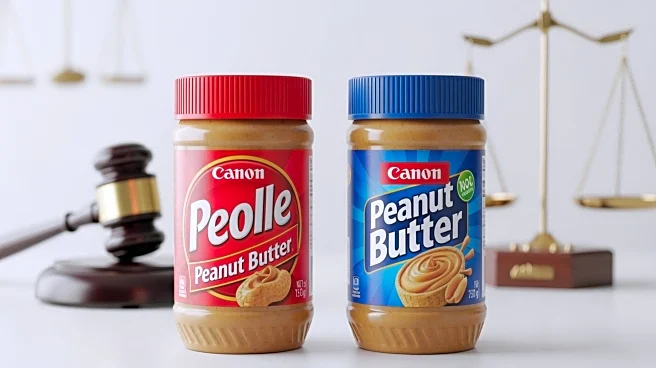What's Happening?
The J.M. Smucker Co. has filed a lawsuit against Trader Joe's, claiming that the grocery chain's new frozen peanut butter and jelly sandwiches infringe on Smucker's Uncrustables trademark. The lawsuit,
filed in federal court in Ohio, alleges that Trader Joe's sandwiches mimic the design and packaging of Uncrustables, including the pie-like crimp markings and blue box color. Smucker asserts that these similarities violate its intellectual property rights, emphasizing the company's significant investment in developing the Uncrustables brand over the past two decades.
Why It's Important?
This legal action highlights the competitive nature of the food industry, where branding and product design are crucial for market differentiation. Smucker's lawsuit underscores the importance of protecting intellectual property to maintain brand integrity and market share. The outcome of this case could set a precedent for similar disputes in the industry, influencing how companies approach product development and branding strategies. Trader Joe's, known for its unique product offerings, may face challenges in defending its design choices and maintaining its brand image.
What's Next?
The legal proceedings will likely involve detailed examinations of trademark laws and product design patents. If Smucker succeeds, Trader Joe's may need to alter its product design or packaging, potentially affecting its market strategy. The case could prompt other companies to review their product designs to avoid similar legal challenges. Industry observers will be watching closely to see how the court's decision impacts the competitive landscape and intellectual property enforcement in the food sector.
Beyond the Headlines
The lawsuit raises broader questions about innovation and competition in the food industry. It highlights the balance between creating distinctive products and respecting existing trademarks. The case may influence how companies approach product development, encouraging more innovative designs while ensuring compliance with intellectual property laws. It also reflects the growing importance of branding in consumer decision-making, as companies strive to differentiate themselves in a crowded market.










